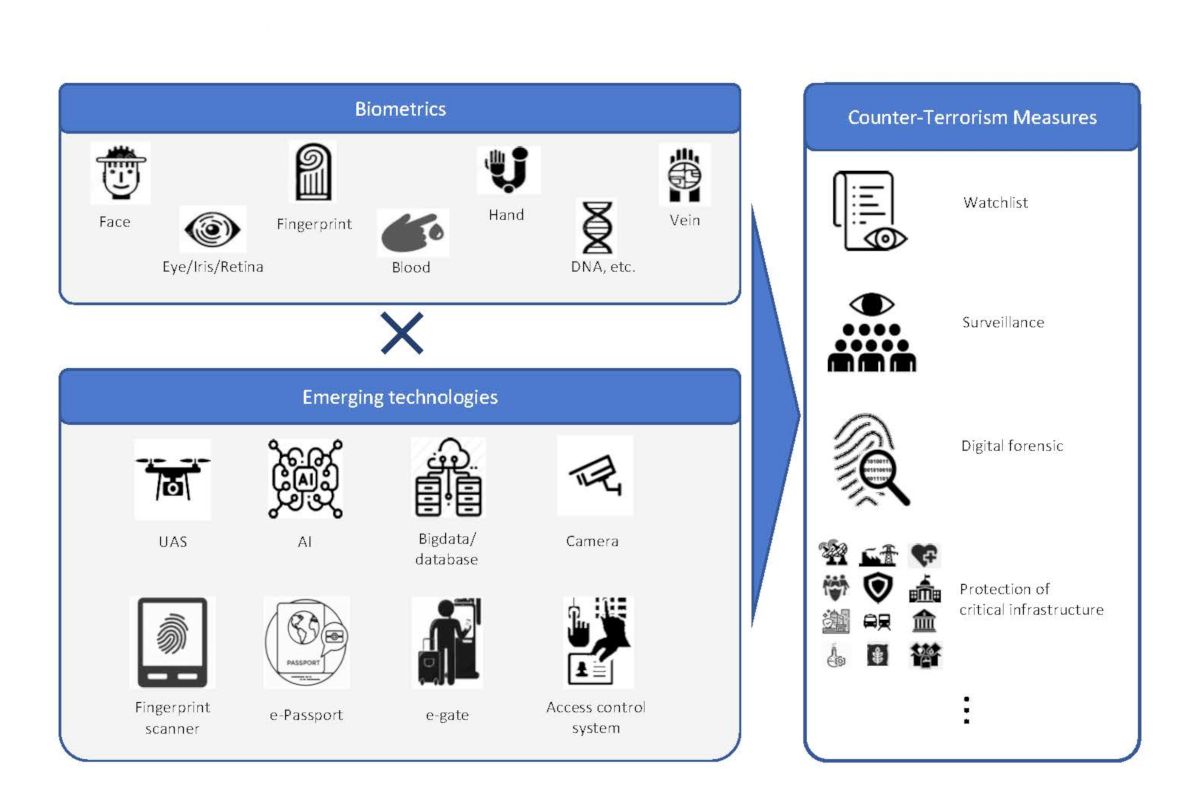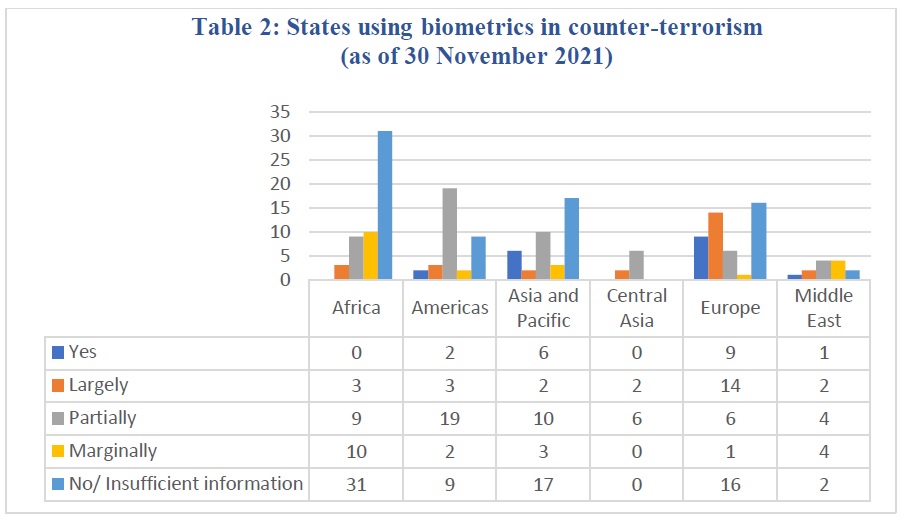Biometrics and counter-terrorism: UN briefing shows global spread of technology
Topic
Country/Region
27 January 2022
The UN's Counter-Terrorism Executive Directorate (CTED) recently published a briefing on the use of biometrics for counter-terrorism purposes, offering a snapshot of how states around the world are increasingly deploying biometric technology.
Support our work: become a Friend of Statewatch from as little as £1/€1 per month.

CTED is "a special political mission in support of the Counter‑Terrorism Committee, which was created by resolution 1373 (2001), following the 11 September terrorist attacks in the United States," and recently had its mandate renewed.
It carries out country visits and assessments to aid in the implementation of UN Security Council resolutions, which now include requirements to establish biometric databases and watchlists.
The briefing notes that "although the extent of biometrics use and expertise varies significantly, 118 of the 193 United Nations Member States have made at least marginal progress in introducing biometrics for counter-terrorism purposes."
The table below illustrates where and how.

See: CTED Analytical Brief: Biometrics and Counter-Terrorism (pdf):
"CTED’s engagement with relevant stakeholders has identified the following trends in Member States’ use of biometric technologies for counter-terrorism purposes:
• States are expanding the range of physical spaces (e.g., border crossing, public spaces, etc.) and digital spaces (e.g., social media) where they are validating biometric data.
• States are employing new and more sophisticated technologies to capture, collect, process, and analyse biometric data.
• A wider range of government officials (e.g., intelligence agencies, national and local police forces, border guards, immigration officers) and some private-sector actors (e.g., contractors) have been authorized to access biometric data.
• Some States have begun to accelerate the sharing of biometric data as part of counter-terrorism cooperation and information-sharing measures.
• States have increasingly developed terrorist watch lists and databases that link or cross-check with biometric databases, including by carrying out biometric checks against INTERPOL notices and databases in order to identify and detect criminals and terrorists."
"CTED’s analysis and engagement with relevant stakeholders has identified a range of challenges relating to the responsible use of biometric technologies in counter-terrorism. These include:
• Technological weakness and limitations
• Insufficient capacity
• Insufficient legal and administrative frameworks
• Insufficient oversight, safeguards, and protection of privacy and data, and the duration of data retention
• Reinforcement of existing discrimination and inequalities
• Potential misuse and challenges to protected freedoms of religion, expression, and association
• Limited sharing of biometric data and information
• Lack of effective remedies in case of violations
• Risk of fraud and abuse of biometric data"
"CTED’s analysis indicates that many States have faced significant human rights-related challenges in their use of biometric tools and their data-sharing protocols. These challenges have included inadequate privacy and data-protection frameworks under domestic law and lack of clear procedural safeguards for, and effective oversight of, the application of biometric technology. In the absence of such frameworks, biometric technologies can pose threats to privacy and personal security, including through their use for broader purposes such as mass surveillance, which can facilitate profiling and discrimination, often against marginalized groups, including women, minorities and asylum seekers."
Our work is only possible with your support.
Become a Friend of Statewatch from as little as £1/€1 per month.
Spotted an error? If you've spotted a problem with this page, just click once to let us know.

